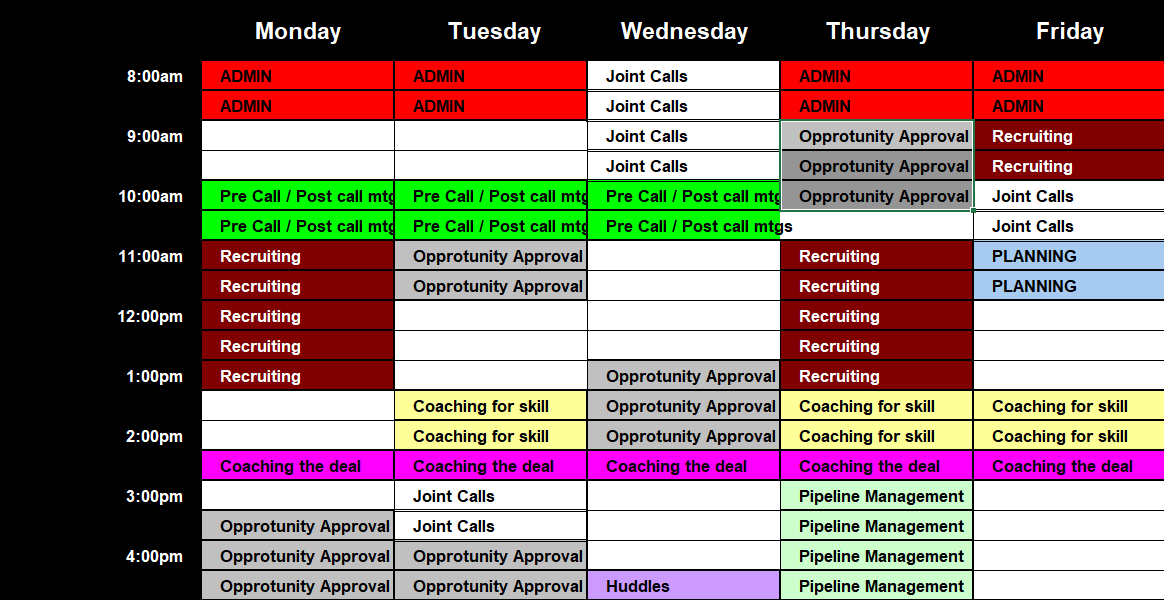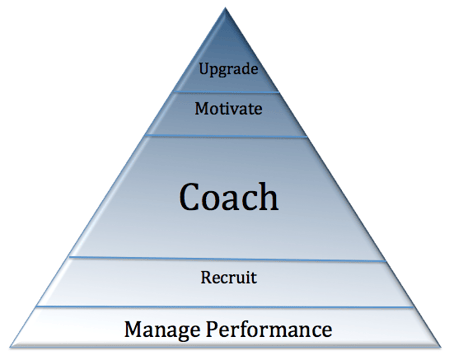In our next edition of Football & 9 Sales Productivity Tools That Will Change Your Results, we bring you our 6th tool, which is "Creating Your Ideal Week".
Crafting your Ideal Week is essential for success in selling as barriers and "fires" often get in the way of accomplishing your goals. While things rarely go as planned during the week, it's important to set yourself up no matter what and stay committed to the process.

I graduated as an Education Major from the University of Connecticut specializing in Secondary Physical Education. In short, I was a gym teacher. I thought that gym teachers just picked a sport they wanted to teach students, put the equipment out on the gym floor, spent some time explaining what they had to do and stood by with a whistle. Little did I know that they spent week nights and weekend hours putting together lesson plans and class schedules.
When I went to the University of Cincinnati to coach with Ralph Staub and David Zimmerman, I found that they too put together coaching plans and practice schedules. They would look at film from the upcoming opponent and from our last game, determine what we needed to work on the most and develop a practice and game plan to execute that week.
But a lot can go wrong that would throw off an Ideal Week practice plan. And so, it is with professional selling. One of the reasons that most “Time Management” programs fail is because the participant fails to understand that they must stick like Velcro to the Ideal Week they have planned. The key lies in their ability to discern what Steven Covey defined as urgent and important events and important and not urgent events.
So here are the keys to creating and making an Ideal Week work for you and or your sales team:
- Identify the must do weekly activities. Remember that about 20% of your activities generate roughly 80% of your results so identify and pursue only those activities.
- Prioritize your most impactful activities.
- Allocate either hours or a % of your total work week to be spent on those activities. Keep in mind that if you are in sales, there is no such thing as a 40-hour work week.
- Begin blocking out time to perform your priority activities.
- Block out time for ‘fires’ (the unplanned, important but not urgent events that are sure to pop up in your daily life).
- AND THE HARDEST PART – Stay committed to the schedule:
- Only urgent and important events should throw you off your Ideal Week. Urgent and important events are things like a top 10% client having a must-fix, can’t wait problem or a personal, unavoidable emergency. Ignore the gnat bites- pay attention to the alligator bites!
- Deal with the important, but not urgent events in the time you allocated to "fires".
Also, as supporting material, here is a graphic of what an Ideal Week would look like on paper or in a calendar:


Sign up for our Sales Brew today to receive regular, beneficial sales tips that you can implement immediately.






